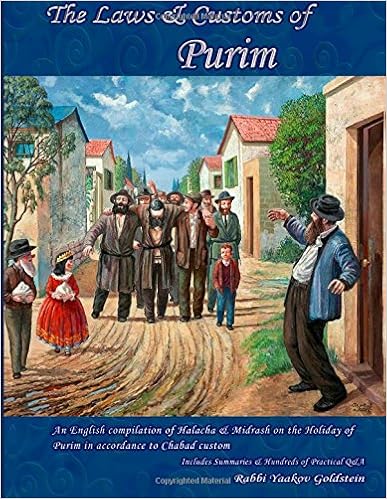
This article is an excerpt from our Sefer

Buy me on Amazon.com
The First Feast: [1]
At the banquet the king asked Esther what was her request. Esther replied that she desires the king and Haman to return to a second banquet that will take place the next night.
Q&A
Why did Esther invite Haman to the banquet with the king?[2]
Some say this is in order to prevent Haman from desiring to rebel against Achashveirosh [and assassinate him]. Others say it was in order to fool them that they not suspect that she is a Jew. Others say it was in order so the Jews mistakenly believe she became a traitor and thus they will not rely on her for salvation and will instead turn to Hashem for mercy from the depths of their heart. Others say it was done in order to find an opportunity to make Haman do something wrong in front of the king and cause him to be demoted or punished. Others say it was done in order to arouse Hashem’s mercy, upon Him seeing that Esther had to flatter the mortal enemy. Others say that Esther wanted to arouse suspicion in the eyes of the king and have him kill both her and Haman. Others say Esther wanted to convince Achashveirosh to kill Haman and if Haman was not readily available he may change his mind. Eliyahu Hanavi was asked by Raba Bar Avua as to which opinion is correct. Eliyahu replied that they are all correct and Esther had all these things in mind.
Sparks of Chassidus[3]
Haman represents Amaleik which is the start of evil. Evil in its core and essence is ego. A feeling of self satiation which does not allow room of subordination to a Higher authority, including G-d. This ability of Kelipa to feel its existence however itself derives from G-dliness, which allows it to exist. However the G-dliness is concealed to a point that the Kelipa is unaware of it, and hence is not nullified towards it. If however there were to be a revelation of G-dliness to the Kelipa, in which the Kelipa itself would recognize the G-dliness, then the Kelipa would no longer be able to nurture its feeling of self from holiness and it will cease to exist. Esther invited Haman to the feast in order to bring him close to Holiness to the point he will lose his existence. The first feast however did not suffice, as Haman still retained his unwillingness to fully become nullified. Therefore Esther invited him to a second feast which led to his downfall, having him hung on the tree.


Leave A Comment?
You must be logged in to post a comment.